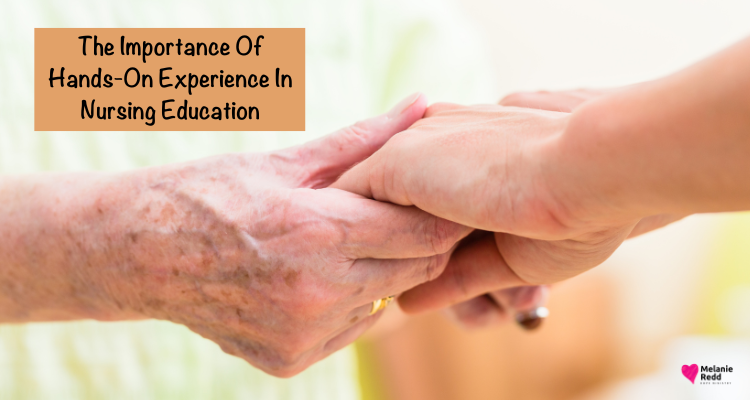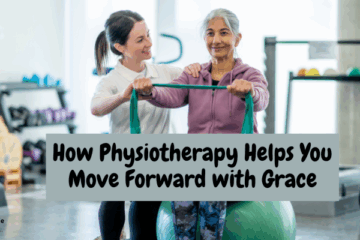The Importance Of Hands-On Experience In Nursing Education

The Importance Of Hands-On Experience In Nursing Education
Nursing education is a cornerstone of patient care and safety in the ever-changing healthcare field. While theoretical knowledge forms the foundation of nursing, hands-on experience truly prepares nursing students for the challenges of real-world medical environments. This experiential learning bridges the gap between classroom instruction and clinical practice, ensuring that future nurses are knowledgeable, competent, and confident in their skills.
Read on to learn more about the importance of hands-on experience in training aspiring nurses for success.
Practical Application of Knowledge
Theoretical concepts often come across as abstract ideas. Hands-on experience breathes life into this knowledge. Caring for real patients with diverse needs and conditions, for instance, creates a more engaging and memorable learning experience. By directly observing the impact of your actions, you can gain a deeper appreciation for the practical implications of your knowledge. This fosters a sense of purpose and motivates you to excel in your studies.
Development of Technical Skills
Developing technical skills is a top priority among the pre-nursing internship expectations of nursing students. Through these experiences, students can acquire and refine essential nursing skills like medication administration, wound care, vital sign measurement, and assisting with medical procedures. The repeated practice of these skills under the supervision of experienced nurses fosters not only proficiency but also the confidence needed to excel in a clinical setting.
Builds Professionalism and Confidence
Hands-on experience also contributes to nursing students’ professional development. Students learn the importance of collaboration, professional behavior, and ethical practice by working closely with seasoned nurses and other healthcare professionals. They get to observe and emulate the attitudes and practices of experienced nurses, gaining insights into the professional standards expected in healthcare settings.
Furthermore, practical experience boosts students’ confidence. With adequate hands-on training, students can feel more assured in their abilities. This newfound confidence isn’t just about personal growth – it translates directly to patient safety and well-being. After all, a confident medical professional is better equipped to make critical decisions and deliver optimal care.
Sharpens Problem-Solving Skills in the Real World
Clinical placements are a crucial training ground for nursing students. Here, they’re confronted with diverse patient care scenarios that demand quick thinking and problem-solving skills. These situations aren’t just tests of knowledge; they’re opportunities to hone critical decision-making, prioritize tasks effectively, and react calmly in emergencies.
Beyond immediate responses, hands-on experiences also foster the development of clinical judgment. This involves the ability to assess patient conditions, anticipate potential problems, and implement appropriate interventions. Through hands-on practice, students refine this essential skill, ensuring they can deliver safe and effective care for every patient they encounter.
Strengthens Communication Skills
Hands-on experiences offer invaluable opportunities for nursing students to develop the interpersonal skills vital for success. Through direct patient interaction, for example, they learn to communicate effectively. This includes guiding patients through procedures, providing clear explanations, and offering emotional support. By actively listening and fostering empathy, students can gain a deeper understanding of patients’ needs and anxieties.
Clinical settings also become a training ground for interdisciplinary collaboration. They become classrooms where students witness firsthand how different healthcare professionals work together. Ultimately, it’s this teamwork, fueled by strong communication, that ensures patients receive the comprehensive care they deserve.
Understanding Professional Standards
Hands-on experiences are more than just about acquiring technical skills; they’re a crucial bridge to professional practice. In a clinical setting, nursing students are immersed in the real-world application of professional standards and ethical considerations required in the healthcare industry. They get to gain a deep understanding of core principles like maintaining patient confidentiality, obtaining informed consent, and adhering to established protocols and guidelines.
Your Hands-On Journey: Exploring the World of Nursing
Here are some of the typical activities you may experience during a pre-nursing internship program:
Shadowing Nurses
You may be given the chance to shadow registered nurses (RNs) to observe patient care, medical procedures, and the day-to-day responsibilities of nurses.
Basic Patient Care
Under supervision, you can assist with bathing, feeding, and moving patients.
Administrative Tasks
You may help with administrative duties like filing patient records, answering phones, scheduling appointments, and gaining insight into the organizational side of healthcare.
Clinical Observations
You may observe various medical procedures and treatments, learning about different aspects of patient care and medical technology.
Workshops and Training Sessions
Some programs may include educational components such as workshops, training sessions, and seminars on topics relevant to nursing and healthcare.
Hands-on experiences can also serve as a platform for students to set realistic expectations about their future roles and responsibilities. This can be a critical factor in their success in the field because they can adequately prepare for the duties and challenges before fully committing to the role.
Final Thoughts on The Importance Of Hands-On Experience In Nursing Education
Hands-on experience is a vital component of nursing education. It equips students with the practical skills, critical thinking abilities, and professional demeanor necessary for effective patient care. By integrating hands-on experience into their training, nursing programs ensure that future nurses are well-prepared to meet the demands of the healthcare industry and provide the highest standard of care.
The emphasis on experiential learning isn’t just about skill acquisition; it’s about shaping competent, confident, and compassionate nurses ready to impact healthcare positively.
Were you encouraged by what you read?
Then, would you share this article with a friend, co-worker, or family member?
Or, maybe you can send it to a friend or family member?
This blog occasionally uses affiliate links and may contain affiliate links.
Additionally, Melanie Redd is a participant in the Amazon Services LLC Associates Program.
This is an affiliate advertising program designed to provide a means for sites to earn advertising fees. These are earned by advertising and linking to amazon.com.
Also, for more on my disclosure policy, click HERE.
© Melanie Redd and Hope Ministry, 2024. Unauthorized use and/or duplication of this material without express and written permission from this blog’s author and/or owner is strictly prohibited.
Further, excerpts and links may be used, provided that full and clear credit is given to Melanie Redd and Hope Ministry.
Please give appropriate and specific directions to the original content.



0 Comments